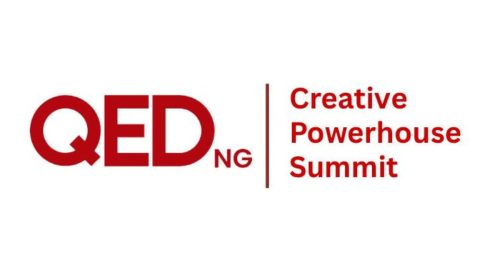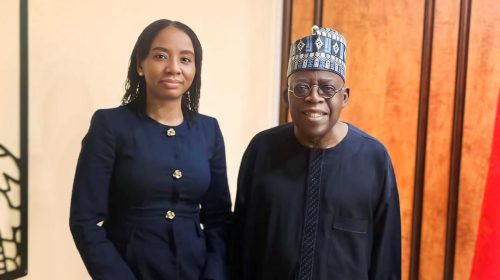Towards Exploring Public Private Collaboration For A Robust Digital Infrastructure, Regulations, Investment And Policy – NCC EVC, Danbatta

By Ngozi Onyeakusi—- The Executive Vice Chairman of the Nigeria Communication Commission (NCC), Prof Umar Danbatta, has highlighted ways through which public private collaboration be explored for a robust digital infrastructure, regulations, investment and policy in Nigeria.
He made this disclosure in his keynote speech while speaking in public lecture at a panel session during the 2021 virtual conference and exhibition on Information Communication Technology & Telecommunications (ICTEL) organised by the Lagos Chamber of Commerce and Industry (LCCI), which is holding from Tuesday, July 27 – Wednesday, July 28, 2021.
The program which focus on Disruptions, Resilience and Governance in Digital Economy have many dignitaries from different sector of the country economy, and mainly targeted at the digital revolution.
Read his full speech at the event
A KEYNOTE SPEECH BY THE EXECUTIVE VICE CHAIRMAN/CEO OF THE NIGERIAN COMMUNICATIONS COMMISSION (NCC), PROF. UMAR GARBA DANBATTA, FNSE, FAEng, FRAES, FNIEEE, AT A PANEL SESSION DURING THE 2021 VIRTUAL CONFERENCE AND EXHIBITION ON INFORMATION COMMUNICATION TECHNOLOGY & TELECOMMUNICATIONS (ICTEL) ORGANISED BY THE LAGOS CHAMBER OF COMMERCE AND INDUSTRY (LCCI), FROM TUESDAY, JULY 27 – WEDNESDAY, JULY 28, 2021.
General Theme: ‘Disruptions, Resilience and Governance in Digital Economy’
COURTESIES
Your Excellency, Governor of Lagos State,
The Honourable Minister of Communications and Digital Economy,
The Honourable Minister of Science and Technology,
President, Lagos Chamber of Commerce and Industry (LCCI),
Deputy Presidents of LCCI,
Government Functionaries and Captains of Industries
Policy Makers Across Sectors
Stakeholders in the Nigeria’s ICT industry and beyond,
Collaborating State and Non-State Partners
Gentlemen of the Press and other Communication Professional
Distinguished Ladies and Gentlemen.
I feel a sense of honour as I am delighted to be the lead speaker at this session of the 2021 Information Communication Technology and Telecommunication (ICTEL) Exhibition and Conference. This is the second virtual edition of the annual conference. The first took place last year, as a consequence of the outbreak of the COVID-19 pandemic and the need to continue to observe necessary protocol and safety measures put in place by the government towards curtailing the spread of the pandemic.
I understand that the overarching theme of this conference is ‘Disruptions, Resilience and Governance in Digital Economy’. However, in order to optimise time and ensure focus, I will restrict my discourse principally to the Conference sub-theme allotted to this panel, tagged: “Exploring Public Private Collaboration for a Robust Digital Infrastructure, Regulations, Investment and Policy”.
By my reckoning, the thematic focus for this session demands that we examine how Public Private Collaboration (PPC), which is generally, so often referred to as Public Private Partnership (PPP), can be leveraged to develop resilient infrastructure that will advance our digital ecosystem. Additionally, we are to reflect on how we can effectively implement regulations and policies as well as create an enduring collaboration between the private and public sector for the development of our digital ecosystem. The acronym ‘PPP’ is a more specialised and familiar concept than PPC in discussions of this kind. I therefore crave your indulgence to allow me to use ‘PPP’ as against ‘PPC’ in this discourse.
The concept of Public Private Partnership has become one of the commonly used model of collaboration among stakeholders to fast track socioeconomic development whether at the global, regional and national levels. In April, 2017, the United Nations Industrial Development Organization (UNIDO) and the International Telecommunication Union (ITU) signed a Joint Declaration in Geneva, “on the advancement of the 2030 Agenda for Sustainable Development Goals (SDG), in particular industrialization, infrastructure development and innovation”. The UNIDO and ITU, driving innovation in ICTs together with 193 Member States and over 700 private sector entities and academic institutional membership, planned to strengthen country-level collaborations.
The two agencies resolved to contribute to global, regional and national efforts toward achieving SDG9, and particularly through action plans that are designed to attract public-private partnerships and investment. The collaboration between ITU and UNIDO, thus, represents a very important commitment from global organisations to deliver measurable and sustainable solutions within countries, towards achieving the SDGs, with a focus on “infrastructure, industry and innovation,” through a PPP arrangement. It is on record that this kind of partnership is helping to fast track the realization of SDG9 with derivable quantifiable benefits to industry, including small and medium-sized enterprises in emerging economies.
Similarly, it is particularly of interest that the African Development Bank (AfDB), in a White Paper on PPP Framework released in September 2020, was emphatic that the infrastructure gap in African countries acts as an impediment to their economic growth and development. According to the White Paper, the gaps impact not only the economic situation of the citizens of Africa, but also the countries’ global competitiveness. The paper also estimates that poor infrastructure shaves off 2% of the per capita Gross Domestic Product (GDP) growth rates.
Suffice it to say that, the role of public-private partnership in infrastructure development in Nigeria cannot be over emphasised because an adequate, robust and functioning infrastructure is the bedrock of communal and societal development. Therefore, to meet future challenges, our industries and infrastructure must be upgraded by evolving an enduring PPP model that services all the sectors of the economy. Objectively, the high level of infrastructure deficit and its attendant effect on socio-economic development in Nigeria explains government’s concern and search for an alternative means of providing infrastructure for the Nigeria’s teeming population.
Thus, in 2005, the Federal Government established the Infrastructure Concession Regulatory Commission (ICRC) with a clear objective to accelerate investment in national infrastructure through private sector funding; and to assist the Federal Government of Nigeria and its Ministries, Departments, and Agencies (MDAs) to establish and implement effective Public Private Partnerships (PPP) processes. It is gratifying that state governments have also adopted variants of PPP models in order to tackle the challenge of infrastructure in their respective jurisdictions.
Distinguished ladies and gentlemen, if the telecom and ICT sector is the real ‘Infrastructure of infrastructure’ as it is often referred to because of its impact, efficiency and effectiveness on the growth of other sectors, it stands to reason, that the telecom sector is the most important sphere PPP should be adopted. Interestingly, a 2012 World Bank report already documented how public-private partnership (PPP) projects have been used to provide broadband access nationally, regionally, or in rural areas to improve broadband access to unserved and underserved locations.
Indeed, the World Bank equally revealed in its 2021 report PPP that the PPP scheme is also helping in key areas of supporting the development of innovative policies, actions, standards and technologies in order to connect the unconnected in any nation, create jobs, enable efficient natural resource utilisation, and electronic waste management. The report also states that Public-Private Partnerships have also serve as organising principles to facilitate product interoperability, reduce the digital and gender divides, and support growth of micro, small and medium-sized enterprises (MSMEs).
In Nigeria, the Nigerian Communications Commission (NCC) is particularly noted for its faith in strategic collaboration and partnership as a central principle of its stakeholders’ relationship management and regulatory activities. Our daily regulatory processes are marked by consultations with a wide spectra of stakeholders as well as strategic partnering and collaboration with both private sector players and other sister public sector organisations.
Following the liberalisation of the telecoms sector in 2001, the Commission has continue to facilitate investment inflow into the country’s digital space through licensing of many private sector players, who are deploying services in different segment of the nation’s telecom market. This has resulted in rollout of massive infrastructure ranging from the deployment of Base Transceiver Stations (BTS) and laying of thousands of kilometres of fibre optic cables to every nooks and crannies of the country. Hence, the sector has grown significantly in investment with significant access to an array of voice, data and other kind of enterprises.
The Commission has also continued to enhance existing infrastructure through the licensing of a category of private sector players known as Infrastructure Companies (InfraCo), who are to deploy fibre optic cable on a wholesale basis across the country with broadband Point of Access (PoA) in each of the 774 Local Government Areas of the country. This InfraCo scheme is running on a PPP arrangement, where the government provides a counterpart fund as a subsidy to stimulate faster, a more robust and resilient broadband infrastructure rollout across the country.
While broadband penetration in Nigeria has reached 45% at the moment, from less than 6% in 2015, and by that fact stimulating digital activities in the country, there still exist access gaps which the Commission is making efforts to bridge. It is noteworthy that the hitherto existing access gaps of 217 identified in the country have been reduced to 114 through increased collaboration between the Commission and stakeholders in the telecom ecosystem. Hence, the InfraCo project being implemented by NCC and other similar regulatory initiatives which has PPP component are in line with policy expectations of the Nigerian National Broadband Plan (NNBP) 2020-2025; the National Digital Economy Policy and Strategy (NDEPS) 2020-2030; the NCC Strategic Management Plan (SMP) 2020-2024, as well as a number of regulatory instruments and frameworks which envisioned the PPP model as a central organising principle for fast-tracking the development of Nigeria’s telecoms industry.
Besides, the NCC is renowned for its tradition of engaging in robust stakeholder consultation on the development of its various regulations and policy initiatives. The Commission consistently engages private sector organisations, in clear expression of its PPP philosophy, to carry out specific tasks, notably, in carrying out cost-based studies, whose outcomes have been used by the Commission to improve regulations and policy decision that have far-reaching positive implications on the economy.
The Commission has also engaged in a number of PPP engagement through such initiatives as Industry Consumer Advisory Forum (ICAF), a multi-sectoral committee of private and public sector institutions whose collaboration with the Commission has bolstered Commission’s determination to continually improve on all principles of protection of telecoms consumers from an array of service challenges as well as incidences of frauds and other associated risks of online transactions.
In a concrete expression of belief in the centrality of PPP principles, the NCC, in November 2020, created a ‘PPP Unit’ as a division under its Special Duties Department. The Unit is overseeing the implementation of the NCC’s revenue assurance solutions (RAS) as well as the Device Management System (DMS) project. The two projects are being implemented in collaboration with private sector players. While the RAS is intended to address the revenue leakages accruable to the government, through the NCC; the DMS is intended to address the issue of type approval of telecom equipment and devices to ensure originality and standardisation because of the implication of substandard devices for health and quality of service. The DMS is also instituted to tackle the problem of SIM boxing and call masking, which not only constitutes threat to national security but also a mark of anti-competitive practice in the telecoms sector and a basis for loss of revenue in tax remittances to the government.
However, despite the various PPP interventions being undertaken by the government and similar initiatives at the Commission, a number of challenges persist in the telecom ecosystem. These include multiple taxation and regulation, Right of Way (RoW) issue, vandalism, poor electricity supply, and lately worsening insecurity. All of these factors affect both the tempo and quality of infrastructure rollout by the private sector licensees, who are the main engine of growth in the telecom sector. These challenges also affect the quality of telecom services and by extension the Quality of Experience (QoE) of telecom consumers.
Distinguished ladies and gentlemen, I therefore, urge our panel of eminent speakers to suggest better and more innovative PPP approaches that may be explored by the government towards making our telecoms infrastructure safer, more resilient, more robust, and how we may attract more investment into the sector. There is no gainsaying the fact that the next frontier for enriching digital economy globally, is through sustained investment in broadband or high-speed Internet access.
I will like to reiterate that the Commission is committed to continuously engaging relevant stakeholders, both in the public and private sectors, in the country and beyond, in order to ensure that appropriate infrastructure befitting a modern digital economic system is available in the country to deepen government’s determination and commitment to total digital transformation of services in the country.
Finally, once again, I congratulate the Lagos Chamber of Commerce and Industry (LCCI) for its consistency in organising ICTEL despite the challenges imposed by the raging pandemic. I cannot overemphasise the appropriateness and relevance of the theme of this forum. I urge you not to rest on your oars and I assure you of our continued collaboration as much as the social and economic realities permit.
Thank you all very sincerely for listening.







Leave a Reply